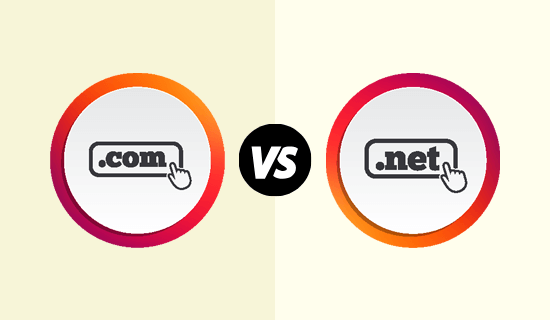
When it comes to choosing a domain name extension for your website or online business, the options may seem endless. When choosing a domain name extension, it’s essential to understand the differences and advantages of each option.
The .com domain is widely regarded as the most popular and widely used domain globally, with approximately 47.8% of websites utilising it. On the contrary, .net domains are reserved for networking companies.
Each domain name extension has its own purpose and implications for websites. Understanding the fundamentals of Domain Names can help you identify the right domain for you and look for cheap Domain Hosting plans.
This article will help you understand the unique characteristics and advantages of .com and .net domain name extensions.
What is a .com domain?
Initially intended for commercial websites, .com has become the most popular and widely recognized domain extension. A .com domain is a unique web address associated with the country code top-level domain (ccTLD) of the United States. Due to its popularity, finding an available .com domain name can be challenging, especially for common or generic terms.
| Pros | .com domains have established themselves as the standard for commercial websites, making them familiar and trusted by consumers..com domains are often more accessible for users to remember and can contribute to effective branding and marketing efforts. |
| Cons | Due to their popularity, .com domains may come with a higher price tag for registration and renewal.Finding an available and desirable .com domain name can be challenging, especially for common or generic terms. |
What is a .net extension?
The .net domain extension was initially intended for network infrastructure-related websites like internet service providers (ISPs) and network technologies. It is a widely used software development platform that enables developers to create applications using programming languages such as C# or Visual Basic. It also offers support for other programming languages like Java and PHP.
| Pros | Registering a .net domain is often more affordable than a .com domain..net domains generally have more options, making finding an available domain name easier. |
| Cons | While .net is widely used, it is less recognized by consumers compared to .com, which may affect user trust and perception.A .net domain may not contribute significantly to branding and marketing efforts as it is not as commonly associated with businesses. |
.net Domain vs .com Domain: Key Differences
| Features | .com | .net |
| Purpose | Primarily associated with commercial ventures. | Broader scope, often used by network-related entities or as an alternative. |
| Credibility | Considered more established and credible due to its long-standing popularity. | Perception of being less familiar or less professional, although diminishing. |
| Popularity | In high demand, making it harder to find available desirable names. | Also popular, it tends to have more options for registration. |
| Suitability | Commonly used for business websites, personal blogs, and portfolio sites. | Suitable for promoting internet service providers and networking. |
.net Domain vs .com Domain: Which is Better?
Choosing between .com and .net Website Domain extensions depends on your needs and brand identity. If you want a cheap Domain Name extension, check out Singapore Domain Hosting providers.
But remember, .com offers broad appeal and credibility, while .net domain is specialised in networking and technology-related businesses. Therefore, consider your brand, target audience, and objectives to make the right choice.
